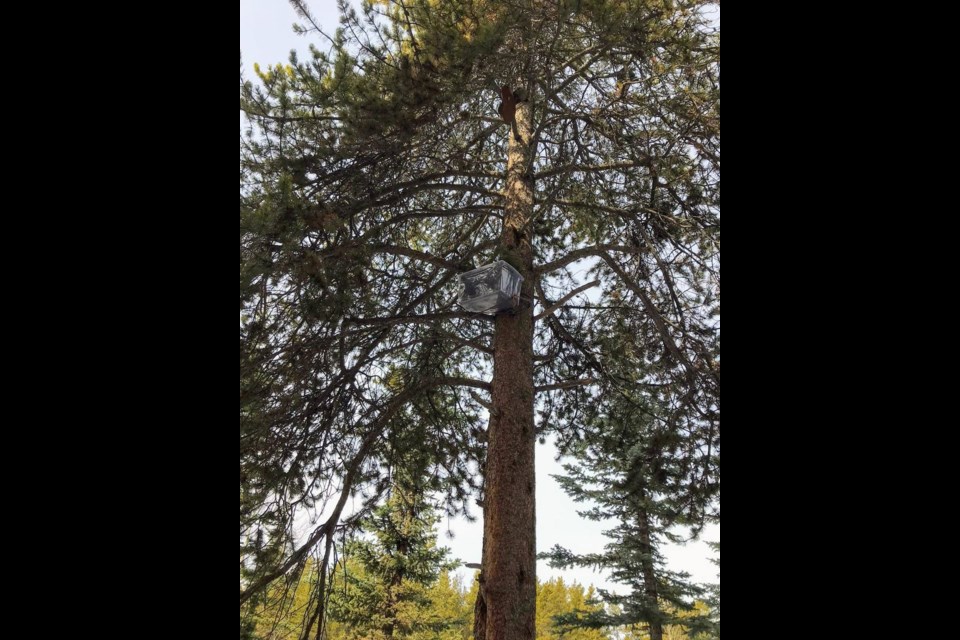LAKE LOUISE – Lake Louise firefighters had a hoot of a time saving an owl egg over the Easter long weekend.
Parks Canada wildlife experts called on the Lake Louise Fire Department to help when a barred owl laid an egg in an ashtray by a local staff accommodation on Saturday (April 3).
Deputy fire chief Gord Wagstaff said it was one of the most unique calls in the history of the fire department.
“We’re used to dealing with fires, rescues and medical, so it was a positive call for us to get,” he said.
“It was nice to help out our friends and give the owl a chance with its egg.”
Wildlife specialists with Parks Canada gently removed the egg from the ashtray.
The fire department arrived with a ladder so the egg could be placed in a new nest built by Parks Canada several metres off the ground in a nearby tree.
“One of our firefighters climbed the tree and installed the nest,” Wagstaff said.
The work was done under the eagle eye of the mother owl.
“When we first arrived on scene the owl was sitting in the tree where we moved the nest to,” Wagstaff said.
“It was watching us quite attentively, but when we went to put the nest in the tree, it flew across the street.”
Barred owls are listed as a species of special concern in Alberta. There are estimated to be fewer than 2,000 breeding individuals.
They live in mixed wood boreal, foothills and aspen parkland forests throughout the province.
According to the 2016-21 conservation management plan for barred owls, increase logging and expanding industrial development threatens habitat for the species.
“Some populations of barred owls are expected to decline as old mixed wood forest declines and becomes more fragmented,” the conservation plan states.
The nesting period for barred owls starts in early spring and lasts until late May.
Eggs are laid in late March or early April, and a brood of one to five young hatches approximately 30 days later.
The Outlook contacted Parks Canada to speak with staff involved in the rescue; however, did not hear back prior to publication.




